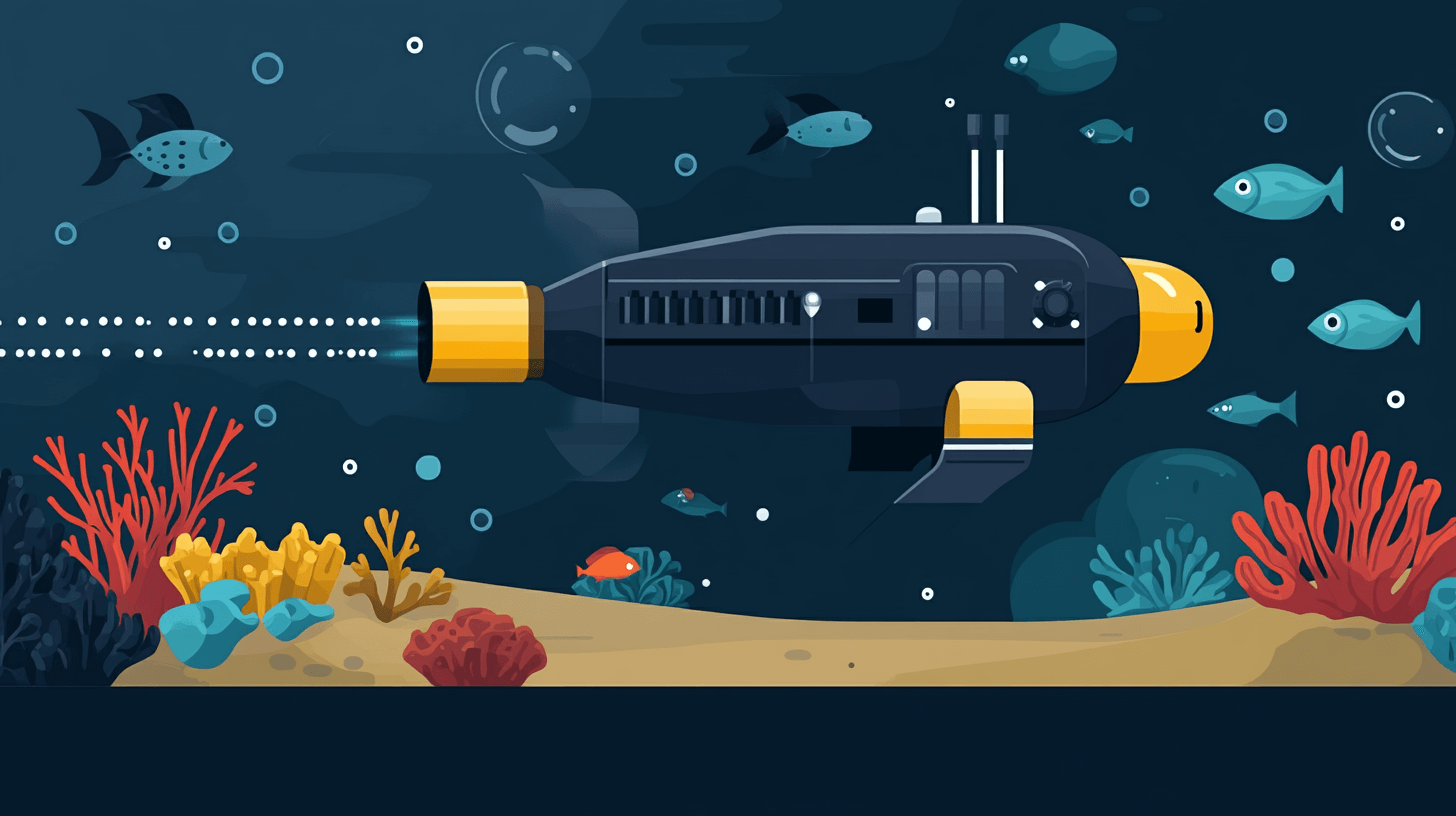
Interesting Computer Science Subjects to Study
November 21, 2019 - Emily Newton
Revolutionized is reader-supported. When you buy through links on our site, we may earn an affiliate commision. Learn more here.
Computer science is a growing and varied field that is continually changing as technology advances. If you’ve ever launched a program on your computer or an app on your phone and asked yourself, “How does this work?” computer science might be the field for you. There’s more to computer science than just learning how to write code, though. Let’s take a look at some of the most exciting computer science subjects you can study either at school or on your own.
Data Structures
Creating a computer program or mobile app isn’t as simple as dropping code on a page and hoping it works. The data needs to have a specific structure to enable the programs to do their jobs. A properly organized data structure allows the data within to be accessed and modified easily. This is the foundation for creating any data storage system. Your Google Drive works on a well-designed data structure system, as does your desktop computer’s hard drive.
Studying data structures will give you the tools you need to create new data retrieval methods that could be valuable for your information storage, making this one of the most exciting computer science subjects to study.
Computer Networks
Many industries rely on computer networks to store information, monitor computer use and communicate between remote office locations. While computer networking might seem like the purview of an IT professional, it is still a huge part of computer science.
While you can study computer networking in school, you can learn the foundations by setting up a network between your computers and other devices at home. If your computers use different operating systems, finding a way to network them is the essence of this computer science skill.
Web Technology
Have you ever built a website? Even if you’re using drag-and-drop templates like those available from providers like WordPress, you’ve taken a step into the world of web technology. Web technology is the foundation for most of the websites you visit daily — even platforms like Facebook and Twitter have a team of scientists who designed their websites to make them work more efficiently.
Web technology can be easy to learn, and it has so many practical applications, we can’t encourage it enough as one of the computer science subjects you should study.
Algorithms
Here is where computer science starts to get fun. Algorithms are a set of rules to be followed in calculations or problem-solving applications, and they are one of the keys to computer science. There are even algorithms being designed right now that allow computer programs to learn on their own, creating extremely efficient programs that can sort through massive amounts of data, find patterns and even predict the future with relative accuracy if they have enough data.
Eventually, these algorithms will be used to control things like self-driving cars and make predictions about finance, medicine and many other industries.
Programming Languages
You can’t study computer science without programming languages. Research HTML/CSS for web development, C++ for mobile apps or computer games or Java for in-browser animations and other interactive features, to name a few.
You don’t even have to go to school to learn programming languages. Head to code.org for the basics — this site is for children, but it can be useful for adult beginners as well — and then to codeacademy.com for more comprehensive lessons on most of the currently used programming languages.
Computer Science for Database Systems
A database is merely a method for storing data — this could be as simple as a text file in Notepad, or as complicated as a spreadsheet in Microsoft Excel or other database software. Learning to use database management systems can make it easier to keep track of your files and other data stored on your computer, but it’s so much more than that. Many companies that use database systems are always looking for someone to run their system and keep track of their files.
Start by using an easily accessible database program like Microsoft Access. You might find you have a talent for databases that you can turn into a career in data management. Even if this isn’t the path you choose, this is a vitally important class for a career in computer science.
E-Commerce Computer Science
Many transactions have moved online, which has created an entirely new field — e-commerce. Globally, customers spend more than $1.2 million online every 30 seconds. This class is just as important for computer scientists as it is for business majors. While computer scientists might not be directly related to the transactions, they are responsible for creating the infrastructure that supports e-commerce.
If a website generates income for its company, having the site go down can cost thousands in lost profits. An e-commerce class can teach you how these things work from a business perspective, in addition to the angle you’ll need as a computer scientist.
Electronics
It’s hard to write a program for a computer if you don’t understand how the hardware works. That’s where classes like electronics and computer engineering come in. These classes will teach you to understand the equipment so you can better understand the software you’re creating.
Even if you don’t like building computers and prefer to write programs, having a foundation in electronics can improve your skills as a computer scientist.
This list is just a small sample of the courses you might need to take to pursue a career in computer science. A degree program — either online or in a traditional brick-and-mortar school — will teach you everything from the courses listed above to compiler design, the theory of computation, Java programming and everything in between.
Math for Computer Science
Many of the computer science subjects you study will require some basic and advanced math, so you can’t hope to succeed in the industry without a strong foundation in mathematics. You’ll need to know how to transform numbers between the different numerical bases, solve math problems in those bases, and how to describe space using coordinates and graphs.
Computers speak to one another in binary, and unless you know how to understand that, you might find yourself lost no matter how many programming languages you learn.
Big Data/Analytics
Companies generate hundreds of terabytes of data every year. It’s up to big data and analytics specialists to create the programs that will sort through that information and turn it into something useful. Big data used to be an industry buzzword but as more and more sectors become entirely digital, this computer science is becoming less of a buzzword and more of an industry necessity.
Learning how to navigate big data and analytics isn’t difficult, especially if you already have a strong computer sciences foundation, but it could help you corner the market as more companies begin relying on this branch of computer science to run their business.
Machine Learning/Artificial Intelligence
Computers are getting smarter every year, and while artificial intelligence might have a bad reputation thanks to popular culture, it could be a useful tool and it’s definitely on the horizon. Computer science experts are already working toward the creation of autonomous AI and have completed programs that are capable of learning on their own.
Google has a fantastic database of resources for anyone interested in learning more about AI and machine learning. If you love computers but really want to be on the cutting edge of computer science, this is a growing field that you should consider studying.
Bioinformatics
Many branches of science rely heavily on computers to process the information that each experiment generates. That’s where bioinformatics comes in. A specialist in bioinformatics creates and programs the tools that scientists will use to understand biological data.
You don’t have to be a biologist to study this field, though you will need a basic understanding of genetics and genomics, biological sequencing and statistics to thrive in this field. It can be a fascinating computer science subject to study even if you don’t see yourself working in the field, because it gives you some insight into the research that is going on and how we’re working to understand our bodies and the world around us.
Graphics and Audio Design
Every computer and video game you’ve ever played has had a team of graphics and sound designers behind it. If learning a programming language or two doesn’t interest you, consider studying graphics and audio design. These skills come into play anytime you’re creating something with a programming language, whether it’s a mobile app or a AAA video game title. It’s amazing to see what you can create with nothing more than a keyboard, a mouse and occasionally a drawing tablet.
This article was originally published on 12/13/18 and updated 5/20/19 to include updated computer science subjects students can study.
Revolutionized is reader-supported. When you buy through links on our site, we may earn an affiliate commision. Learn more here.
Author
Emily Newton
Emily Newton is a technology and industrial journalist and the Editor in Chief of Revolutionized. She manages the sites publishing schedule, SEO optimization and content strategy. Emily enjoys writing and researching articles about how technology is changing every industry. When she isn't working, Emily enjoys playing video games or curling up with a good book.








Wow! Its an extensive list that’s suitable for all types of people to learn curiously. I’, very well schooled on this now. Thanks!
The Info inded helpful, thanks
Thanks for writing this article. It is very helpful for the person who is eager to get knowledge about computer science. Thanks a lot.